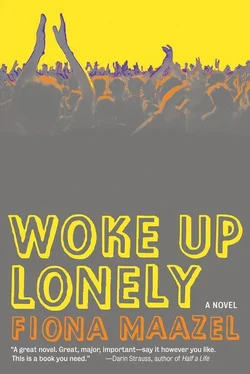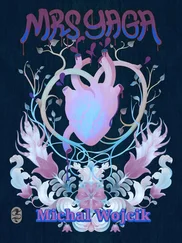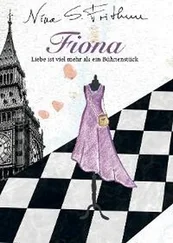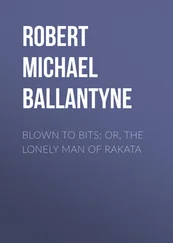And so, sitting there watching Nameless Heroes, I began to get a bad feeling. Perhaps I had not given North Korea its due as a repressor of men. The Pass of Tears to labor camp was but one misstep away. Sneak a Western soap opera — a favorite in the North — and you could be sent to the notorious prison compound Yodok. Consider this: It’s midnight and all of a sudden, the People’s Security Force kills the electricity before a house raid just so you can’t eject your tapes smuggled in from the South. And for this: twenty years’ hard labor.
If the Koreans were even showing us Nameless Heroes, it meant they knew to whom I’d been married and the nature of her work. It meant they knew she was after those soldiers. And so it began to seem possible they had actually invited me here to end my life at Yodok.
The only way off the island was by bridge. We had no transportation and no passports, and I hardly thought Isolde was dressed for the four-thousand-mile trek to freedom. There was nothing to be done.
They woke us up at 4 a.m. General Kim Jong-il, it seemed, had insomnia. It was unlikely Isolde was intended to join me, but when my five minutes to recoup sense and bathe were up, the escort was more than a little vexed to find her languishing in bed. One got the impression his livelihood — possibly his life — was riding on the timeliness of our arrival at the general’s abode.
What sorts of men are granted audience with a quixotic, possibly insane but more likely astute megalomaniac? What sorts of men does this megalomaniac prefer? Men who drink. In the limousine were two in uniform and a third in civilian dress. The officers did not talk to us but decanted a malted beverage into four glasses. I don’t much like the drink, so I gave mine to Isolde, at which juncture I was advised to take it back.
Traversing the city at night was not much different from during the day. In the day the roads were stippled with cars — a handful — and at night there were none. Lights were scarce, there were no traffic signals, and every road felt epic. These were not roads, they were runways. Tree lined. Swept clean. Flanked in the distance by the gray slab architecture we’ve come to associate with the Eastern Bloc. I looked out at the full moon and starscape and decided this must be the only capital city in the world with industry so depressed, you could see the starscape.
Isolde began to nod off. Both military men nudged my foot. I pinched her leg. She said, “All right, all right,” and asked for a drink of her own.
Now, perhaps I am a Westerner who thinks all Asians look alike, in which case and insofar as I share this problem with millions, I should be forgiven the following observation: the civilian between the officers of rank looked a whole lot like Kim Jong-il. The multiple chins and pompadour. The tan leisure suit with elastic waist. The pudgy wrists and feminine eyeglasses that came halfway down his face. The way he regarded Isolde, whose Swedish coloring I’d been told the general preferred. Based on what I knew of him, there was no chance he was in our Benz, unacknowledged and without the pageantry imperious men like to grant a summit, but even so: the likeness was astonishing. But also discomfiting. Now and then, if a streetlamp happened to be on and illuminated his face, something about it seemed off. Skin grafts, maybe. Silicone implants. I’d heard he was vain like that. But still.
We drove through the city and out toward the coast. I knew Kim Jong-il had a beach residence and assumed this was our destination. By night’s ebb, however, we were still driving. The guards never took their eyes off us, but the man in the leisure suit was charming. He tippled without pause, refilling my glass and his. We made small talk. I was fettered in my speech, assuming the car was bugged. A lovely city, Pyongyang. Most hospitable. Yes, yes, but how did I like the movie? I said it was testament to the creative genius embodied in the general’s seminal tome on the subject of filmmaking. I said, and here was the biggest risk I’d ever taken in my life, “In particular, the Americans were great, a wonderful coup for Korean cinema.”
He nodded and smiled and asked Isolde what she thought, and since I’d told her that the Americans might be living in the Mangyongdae District, on the west side of town, I expected her to wile a tour of the area and a visit with at least one of the Americans for an autograph.
“What do I think?” she said. “I think that movie was crap.”
From then on, I was sidelined. They talked about Elizabeth Taylor, Peckinpah, and the displacement film Westworld, set in a recreational frontier town of cyborgs. Isolde railed against cartoon movies and bristled when asked whether she agreed that Friday the 13th was the best horror movie ever. That honor she reserved for Evil Dead II.
The liquor was cognac, and I was starting to feel ill from thought of my caloric intake for the day, well in excess of what my diet allowed. I looked out the window and was certain we’d passed this bridge before. I despaired of this drive ever coming to an end.
I sat back. I was exhausted. The man in the leisure suit asked me about my family, and when I told him about my wife and child — how much I missed them — he finished the last of his drink and appeared to shut down. Stopped talking. Leaned back and stared at his hands with an expression so leached of feeling, it was as though you could source the country’s bleakness to his face. Perhaps he was a paid look-alike, but no matter. I liked him and began to pity the fallout of having to live as we did, at the top of our field, commanding the people and forging ahead. I expected Kim Jong-il’s personal life was no less dismantling than mine. He had four wives, seven offspring; I wondered how many of his wives couldn’t stand him, either. I had the urge to pat him on the knee and say I understood. But the moment passed. And next I knew, we were back at our hotel. It was a Monday morning, 7 a.m., and the city, for its millions, was dead.
That afternoon, I met a low-level official who took notes on the Helix — our numbers and stats — and that was that. Homeward bound. Home to this, which is soon to be a eulogy. Can you hear what’s happening outside? It’s the madding crowd, come to hang the king.
There were choppers overhead. News crews just beyond a perimeter that berthed the house at fifty feet, and guys in bucket trucks who had already started to deforest the grounds. There was tension about when to aggress against the Helix House, and tension between SWAT, which would have welcomed the elevated vantage of a tree-house bower, and the National Guard, which wanted to tank through Cincinnati without stop.
Thurlow trolled the halls. Light from the clerestory windows had vanished behind clouds that had rolled in fast. Even the weather seemed to have been conscripted into the narrative of doom being written outside. People in Cincinnati always liked to talk about the tornado outbreak of ’74 and its follow-up in ’99. In ’99, eight of the city’s civil defense sirens malfunctioned or lost power, which betrayed the stupidity of relying a bad-weather siren on electricity when electricity tends to fall victim to bad weather. Most civil defense sirens made use of a minor third to sennet bad news. The sound was not the clamor of police or medical transport but a howl that seemed to exercise the grief of things unsaid; cf. the sob that issued from the Thunderbolt apparatus of downtown Cincinnati when a tornado was afoot. Thurlow had modeled the house alarm on it so that if the house were breached, the news would anguish for miles. But for now, all being inside, he was safe.
He checked his watch, seven o’clock, which meant he was expected online for his weekly appearance. Showing up today was probably not a good idea, though it might be fortifying to gauge the mood of his people. Maybe no one actually cared what was happening at the Helix House, in which case he could cut himself some slack.
Читать дальше












